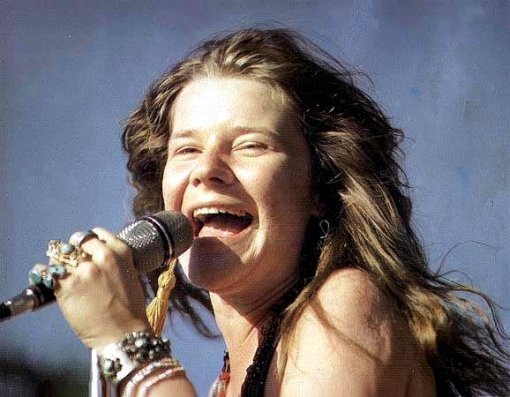This is an abridged version of a note I (Brian) posted on my facebook profile some weeks ago, explaining how the lyrics to the song “Where Is Bobby McGee?” came about. Some of my lyrics were written in such a roundabout way that not even I know what they mean anymore, but “Where Is Bobby McGee?” might be the easiest one to explain. And the one most in need of explanation. I have to admit, it’s probably the least favorite WSD song of every other person in the band due to its musical repetitiveness. Nelson reminds me all the time. But I meant it as a lyrically driven song, so whatever.
[Note: After I originally wrote this, Nelson corrected me to say that “Where Is Bobby” is actually not at all boring to listen to, just painfully boring to record.]
Here’s my demo:
Where is Bobby McGee? mp3
Where is Bobby McGee? lyrics
UPDATE: Now that our studio album is out, we took down the old demos, but you can listen to the final studio version of Where Is Bobby McGee? instead.
The lyrics don’t necessarily make a whole lot of sense if you’ve never heard “Me and Bobby McGee,” originally by Kris Kristofferson (you can find lyrics here) and made famous by Janis Joplin. The song was originally about a girl named “Bobby.” Janis Joplin switched the genders of the characters, and it’s her version that I’m working with in my take on Bobby McGee. Most people think of Bobby as a boy, and that version works better for me anyway.
The inspiration for “Where Is Bobby McGee?” can be traced back to Prof. Rick Schuldenfrei of Swarthmore’s philosophy department. When I first went away to school, my dad had only one request: “Just don’t major in philosophy.” I think this is because my dad wanted me to get a job when I graduated. Dad didn’t realize that Brian Rose could have majored in anything at any college, and in no case would he have graduated with a job waiting for him. So I never really considered majoring in philosophy, but I did take a couple of classes with Schuldenfrei. Contrary to my dad’s ideas about the subject, Schuldenfrei doesn’t seem to think that philosophy is about thinking deep thoughts while you beg for change on the street. Or while you sit in your ivory tower, whichever stereotype you prefer. The man seems to think that the study of philosophy can change lives and predict the future. While I give the guy credit for that, I have to say that what I really like is his tendency to make fun of people and to pound his fist on his desk when he gets frustrated
In Schuldenfrei’s class we read John Stuart Mill’s “On Liberty.” Mill is a big fan of freedom, apparently. Sounds like a good guy then, eh? Surprisingly enough, Schuldenfrei is not a big fan of Mill. In “On Liberty,” Mill explains all about how freedom of speech and freedom of action will lead to an enlightened society, where individuality will lead people to develop all their abilities to the fullest: “It may be better to be a John Knox than an Alcibiades, but it is better to be a Pericles than either; nor would a Pericles, if we had one in these days, be without anything good which belonged to John Knox.”
Holy shit, do I have to unpack that entire goddamn sentence? Screw that. That’s an essay on its own. Let’s just say Pericles was a smart guy and leave it at that. And Mill says more freedom = more Periclesesses.
Schuldenfrei disagreed with Mill, and he let the class know. According to Schuldenfrei, empirical evidence tells us that freedom often leads to a society filled with people who don’t want to be Pericles. They just want to feel good. Schuldenfrei pounded his fist on the desk while trying to remember a song that he couldn’t quite put his finger on… “Bobby McGee,” he said. “I don’t think this sort of freedom turns people into Pericles. It turns them into Bobby McGee. Feelin’ good is good enough for me.”
While turning this idea over in my head during class, I came across the phrase “Bobby McGee can have his freedom,” (the original working title of the song) and tucked it away in the back of my mind because I thought it sounded cool. That night I took out my acoustic guitar and started playing a riff I’d written in about 5 minutes the day before. With the original “Me and Bobby McGee” lyrics sitting in front of me on the computer, I wrote my lyrics, not including the fourth verse, in about 15 minutes. A combined 20 minutes to write the song. Quickest song I ever wrote. (Usually writing a song takes several hours spread out over the course of weeks, or in some cases, spread out over a few years). I included a ton of references back to Janis’s Bobby McGee, right down to the “la la” part at the end. The song is based off of one of Schuldenfrei’s signature themes: Americans love to talk about our rights and freedoms, but what happens when freedom becomes the biggest priority in your life?
Rather than say more, I’ll just let the song speak for itself, outside of a couple of clarifications. In my first draft, the song was all about a single character, Bobby McGee. But then I realized that I’d created a sort of paradox in chronology. The speaker in the first verse seems to be at least as old, probably older than the girl, and by implication older than Bobby. In the second verse of my first draft, Bobby is a memory from childhood, a memory of an older guy. I didn’t know if Bobby should be older or younger than the speaker, whether the song should take place in 2007 or 1967… so I got Bobby out of the song all together in my final draft. He’s just a concept and not a character. The guy in the second verse is now the same age as the speaker. He’s not the ex-boyfriend from the first verse. And neither of them are THE Bobby McGee, though they may be analogous to him. I also started thinking the song sounded a little preachy, especially coming from a guy who might not always follow his own advice. So I added the fourth verse to say, “I’d like to avoid being Bobby McGee, but what the hell, I can’t say.” So four decades after the story was born, I guess I’d like to know… where is Bobby McGee these days?



One Reply to “The origins of “Where is Bobby McGee?””
Comments are closed.